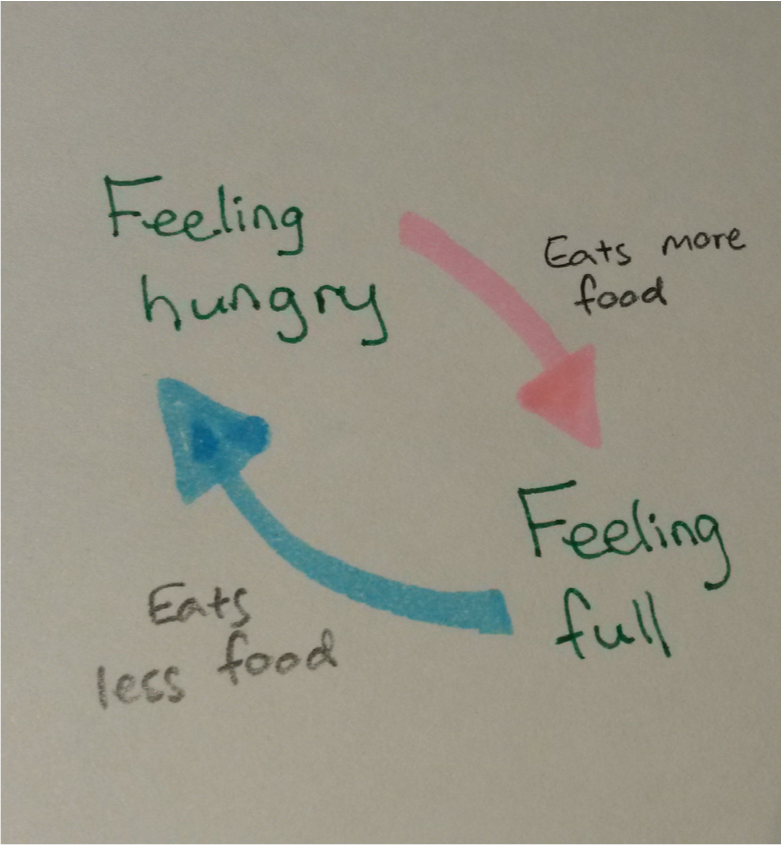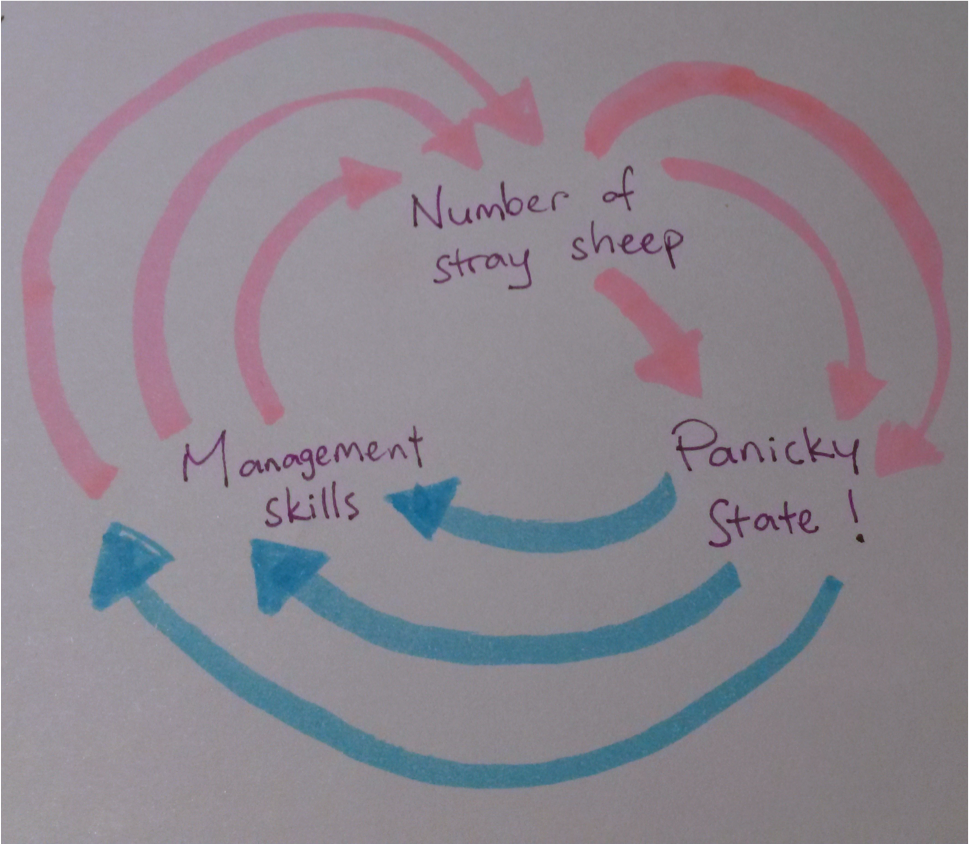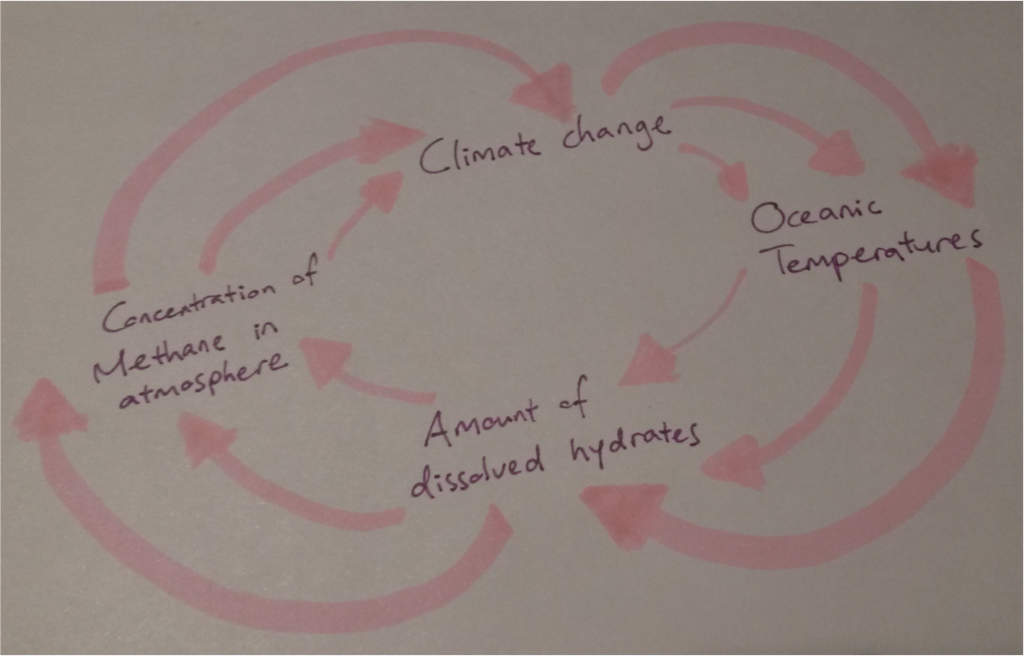Getting back into my bad, inconsistent habits.
But we all understand it's that time of the semester where uni workload just gets really out of hand.
And I've got another month of exams coming up, so do expect an another month of inactivity.
But I thought I'd share a little update before start studying for finals a.k.a this is my current method of procrastinating.
I was wondering on whether I should write about something personal or something educational and science-y. In the end, I couldn't make up my mind so I thought 'why not do both!'.
I'll just write about a topic that I find deeply fascinating.
So back in my first year, I did a earth science introductory unit.
In that unit, you had to contribute to a glossary in order to earn participation marks.
It was really hard finding original terms to contribute, what with 500 other students trying to get as many entries in as possible.
I looked around in my textbook for ideas. Eventually, I encountered something interesting called the Clathrate Gun Hypothesis.
I did a bit of reading up on it and thought it was quite interesting.
But first of all, I think I need to explain the concept of 'feedback'.
Feedback is simply how one factor affects another.
For example, eating more food causes you to become fuller.
You've got a feedback mechanism between eating food and being full.
We can classify these feedbacks into two categories: positive and negative.
In negative feedbacks, the process involved will self-regulate itself depending on the state of its components.
Now I know that sounds really confusing (and I really need to work on minimising jargons used), but an example would make this clearer.
So, if you increase the amount of food you eat, your stomach will be filled with more food.
However, when there is more food in your stomach, you will feel full and tend to reduce the amount of food you eat.
In this cycle, you are self-regulating the process, where the rate you eat food will vary depending on the situation.
Another example would be the production line in a factory;
if you've made lots of products, you can afford to tell your employees to slow down.
But if sales are doing great and you're running out of stock, you can tell your employees to speed up production (P.S. this might put extra strain on employees though).
These aren't really good examples, but it gives you a gist of what negative feedbacks are.
Now for the more confusing (but epic) positive feedbacks.
Positive feedbacks are where a bunch of processes repeats itself in a never-ending cycle.
But as the process repeats itself, the system gets bigger and bigger and bigger....
Until KABOOM! Well, at least in most cases.
Positive feedbacks are really interesting because lots of processes experience positive feedbacks in natural systems.
Of course, this means if we leave to alone for long enough, it'll go haywire and wreck havoc!
Okay, example time! I like this one because its simple (source: Wikipedia).
A farmer is handling his flock of sheep. He does his job well, but is still inexperienced.
All of a sudden, about 5 sheep strays from the herd. The farmer panics! He doesn't know what to do.
While he's panicking, another 5 sheep followed the stray.
The farmer proceeds to panic even further! His judgement is clouded while in this panicky state.
His managing skills decline as a result and more sheep start running amok!
This continues on in a cycle where the farmer panics more and more, while more and more sheep go rampaging.
Let's say, this continues until the farmer gets so worried that he faints.
That's what a positive feedback does. Inflates itself till it bursts!
The Clathrate Gun
Okay, now that I've used some relatively simple examples for positive and negative feedbacks, I'll give a real example now for positive feedback loops.
Just because I think it's way more interesting (and its consequences are worth noting).
Behold! The clathrate-gun hypothesis!
I say hypothesis because it hasn't been proven yet. But it was briefly mentioned in my textbook back in first year. And I thought it was pretty cool!
So this hypothesis talks about methane hydrates - a ice-crystal-like structure lying around in the bottom of the deep ocean.
Methane hydrates contain...methane, obviously.
And let's not forget, methane is a greenhouse gas, several times stronger than our normal carbon dioxide in fact!
So, why do we get methane hydrates only on deep ocean floors? Why not on land or on shallow water?
The answer is because these hydrates can only exist when pressure is high and temperature is low.
Because of these required conditions, the ocean floor is the perfect place for it to form.
But what if we mess up these conditions a little? Reduce the pressure or increase the temperature a bit?
These hydrates will dissolve and release methane gas into the ocean.
But what's really scary is the amount of methane gas these hydrates can pack - every 1m3 of hydrate is capable of releasing 164m3 of methane gas! That's a lot of gas!
Back to modern days, humans have really made quite a commotion.
Climate change is a big thing right now, with the atmosphere and ocean getting warmer.
So, if we increase the temperature of the ocean, those methane hydrates won't have a cozy environment to exist anymore.
A very small chunk of it will eventually dissolve and release large amounts of methane, which will travel to the atmosphere.
Remember how methane is a much stronger gas than carbon dioxide? Its effects are going to be more prominent!
And what happens with more greenhouse gas in the atmosphere? More warming!
More warming causes more hydrates to dissolve, releasing even more methane gas into the atmosphere!
The cycle continues until all the hydrates are gone.
But its not like we'll be there to see it, since so much methane in the atmosphere would have killed most organisms!
That's a positive feedback at play right there.
A small change can make a system repeat itself, getting bigger until it cannot sustain itself anymore.
Interestingly, notice how the hydrates were living peacefully on ocean floors until the
These hydrates wouldn't end up in a positive feedback loop if it weren't for the initial change in ocean conditions (the temperature increase).
And that's why this planet is still in one piece even though many systems have positive feedback natures.
We haven't triggered these positive feedbacks yet. But when we do, even a small change can cause the effects to become magnified out of proportion, as seen with the hydrates!
So, why don't we make a move to reduce greenhouse gas emissions before it's too late.
Who knows when we'll kickstart a positive feedback loop and start a hopeless countdown to ruin for future generations.
As a closing note, I need to emphasise that this is a hypothesis.
It has not been proven, and the data obtained are showing mixed messages.
The topic is quite controversial in its field but nevertheless, I find it really cool and a concept that's easy to understand.
Although evidence on this is still mounting, we need to remain vigilant on the carbon footprint we leave on the planet.
Lastly, in case anyone finds this interesting, I've attached a list of relevant articles for you to check out (if you have trouble accessing them, just pop me an email):
- Dickens, GR 2003, 'A methane trigger for rapid warming?', Science, vol. 299, no. 5609, pp. 1017-1017. (Link)
- Kennett, JP 2003, Methane hydrates in Quaternary climate change: The clathrate gun hypothesis, American Geophysical Union. (Link; the original book, paywalled)
- Lifland, J 2002, 'The Bookshelf: Methane hydrates in Quaternary climate change, The clathrate gun hypothesis', EOS Transactions, vol. 83, p. 513. (Link; paywalled, email me if interested)
Listening to Verge - Owl City
Halfway through,
TK



0 comments:
Post a Comment